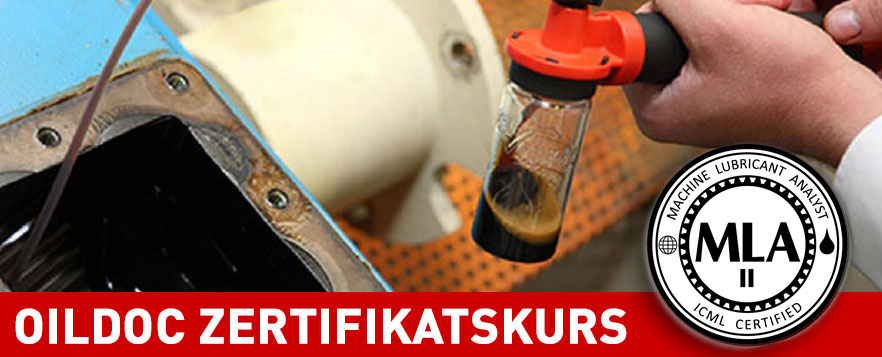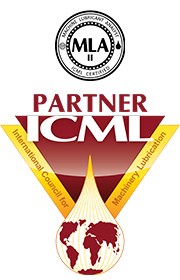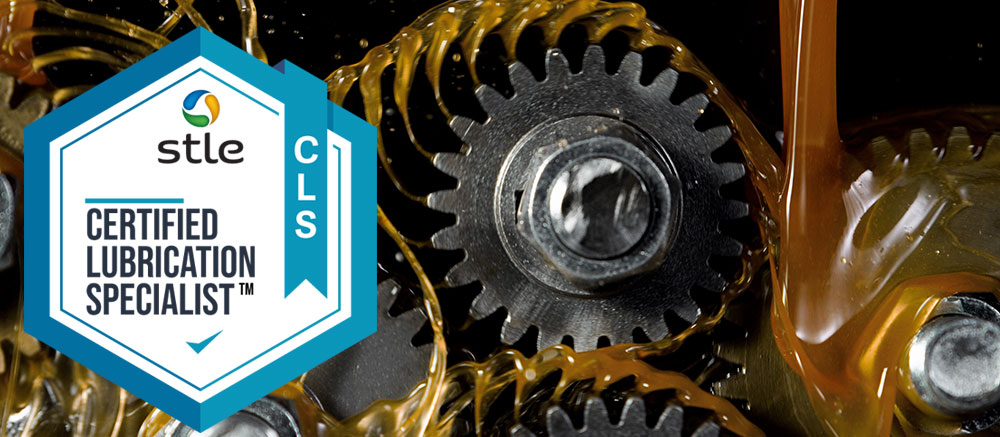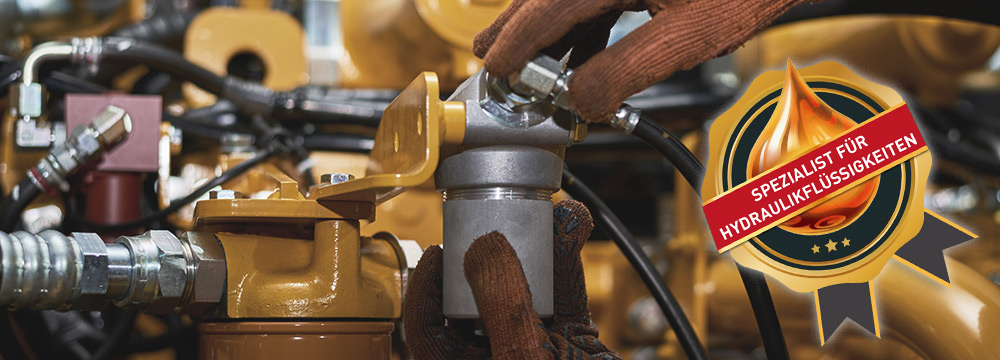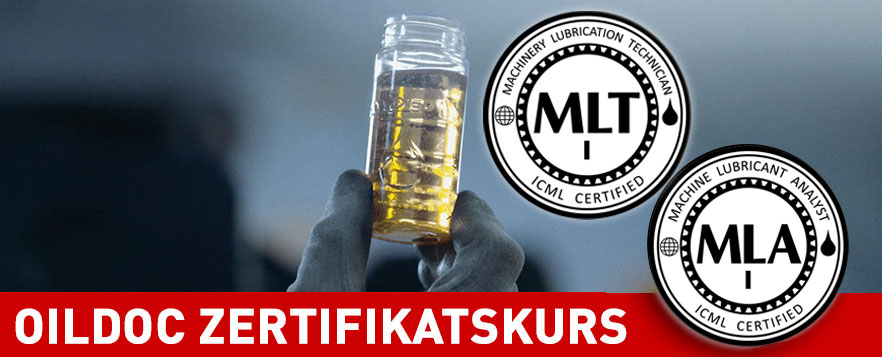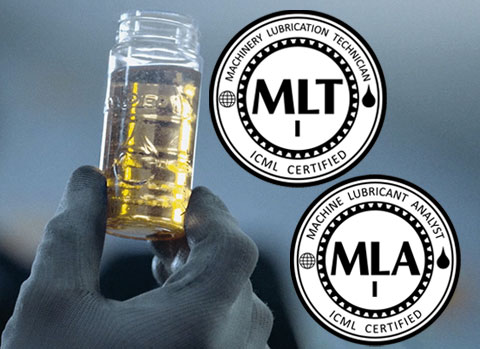Machine monitoring through oil analysis: Your path to becoming a certified oil analysis specialist (MLA II)
The MLA II seminar – Machine Monitoring through Oil Analysis (for advanced learners) offers you targeted and practical preparation for the official examination to become a Certified Oil Analysis Specialist (Machinery Lubrication Specialist – MLA) in accordance with ISO 18436-4. Expand your expertise in oil and grease analysis and learn how to use it as an effective tool for machine monitoring, maintenance and quality control. Benefit from in-depth content tailored specifically to certification requirements and strengthen your skills for sustainable plant reliability and cost efficiency.
Take advantage of this seminar to advance your career in the field of machine monitoring and raise your expertise to a professional level – for lasting success in your company.
Detailed information about the job description of an MLA (Machinery Lubrication Analyst) and the activities of an oil analysis specialist is available on our separate country page.

- Preparation for the official MLA certification examination in accordance with ISO 18436-4
- Providing in-depth knowledge of lubricants, their selection, use and environmental aspects
- Application of modern methods of oil and grease analysis for precise monitoring of machine conditions
- Practical training in oil maintenance and compliance with cleanliness requirements for maximum plant availability
- Expansion of individual expert skills for advanced users and practitioners in the field of machine monitoring
- Increased operational reliability, efficiency and reduced maintenance costs through targeted analysis and interpretation of oil data

- Skilled employees, managers and executives working in the field of service and maintenance
- Technical sales consultants from lubricant and filter manufacturers and their sales partners
- Technical purchasers for lubricants and operating fluids
- Specialists from the service and sales departments of machine and component manufacturers
- Appraisors and surveyors for damage analysis and machine malfunction
- Specialists and managers from oil maintenance, oil monitoring and other areas who want to expand or update their technical knowledge of oil analysis.
The certification test
Participation in the official MLA II examination is voluntary. You have the option of taking the exam immediately after the seminar as an online test under supervision at the OilDoc Academy premises. The organisation and implementation will be carried out via the ICML platform Examity.
Detailed instructions for candidates taking the supervised online test are available here as a PDF file:
Instructions for candidates taking the supervised online test.
Important information regarding participation in the examination:
- Registration for the examination must be done independently and must be submitted directly to the ICML at least two weeks before the examination date.
- The examination fee ($275 USD as of 10/2025) is not included in the seminar price.
- Please note the current admission requirements of the ICML for the MLA II examination.

